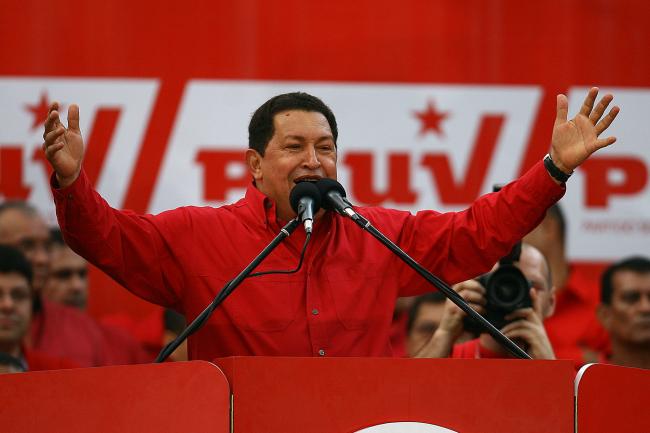by GABRIEL HETLAND

The country’s current economic and democratic crisis should not be used to erase Chávez’s impressive accomplishments in working to build 21st-century socialism.
Hugo Chávez died eleven years ago. The period since has been one of the most difficult in Venezuela’s history. From 2014 to 2021, Venezuela suffered one of the worst economic crises in modern history. The economy contracted by 86 percent. Poverty rose to an estimated 96 percent in 2019. Inflation reached an absurd level of 350,000 percent that same year. In 2018 nearly a third of the population suffered undernourishment. And roughly a quarter of Venezuelans have fled in an unprecedented out-migration that now exceeds 7.7 million.
The economic situation has improved in the last two years. The Council on Foreign Relations reports economic growth of 8 percent in 2022, 4 percent in 2023, and estimates that it will be 4.5 percent this year, in part due to the recent (but fragile) easing of US sanctions against Venezuela. Inflation has also been tamed, dropping to a comparatively modest if still quite high 360 percent in 2023.
Venezuela’s political situation has also been extremely challenging. Chávez’s handpicked successor, Nicolás Maduro has faced waves of opposition intransigence and violence. Maduro has responded with repression, directed not only against elites but often also the popular sectors that formed Chávez’s core support base.
To what degree should Chávez be held responsible for the crisis that has engulfed Venezuela since his death? How should we assess Chávez’s legacy in light of the crisis?
Two theses have emerged in response to these questions. The first blames Chávez for much, and in some cases nearly all, that has transpired since his death. The argument here is that Chávez was an incompetent authoritarian who destroyed Venezuela’s economy and eroded its once-vaunted democracy. Further, Chávez chose Maduro, who finished the destruction Chávez started. The second thesis holds that Chávez bears little to no responsibility for the country’s descent. The crisis is instead laid at the feet of US imperialism; some who subscribe to this thesis also blame Maduro’s misguided and autocratic policies.
Neither argument fully captures the reality of the Chávez and post-Chávez eras, although the second is a bit closer to the mark. There is no doubt that the US bears immense responsibility for the profound suffering Venezuelans have experienced in the last decade. This is true, most directly, because of the impact of US sanctions, which particularly since 2017 have decimated Venezuela’s economy and its oil production. The US has also supported the most far-right elements within the Venezuelan opposition, most infamously during the 2019-2023 “interim presidency” of Juan Guaidó who, among other things, attempted to foment a military coup and backed a tragicomic sea invasion by US mercenaries.
It is also true that Maduro’s policies have been disastrous and autocratic and have directly contributed to Venezuela’s socioeconomic and political malaise. This does not mean that Chávez is fully off the hook—rather, it points to the need for careful assessment of the Chávez years, with attention to his successes and failures.
NACLA for more
